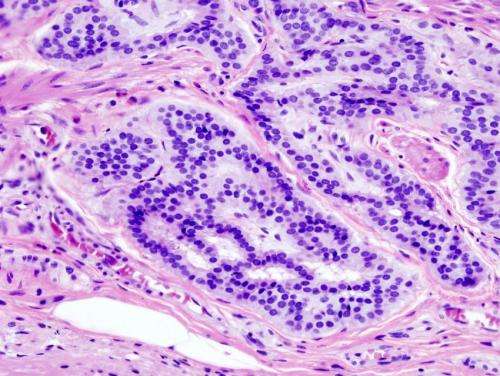Researchers trace origins of colorectal cancer tumor cells

For the first time, Keck Medicine of the University of Southern California (USC) cancer researchers have traced the origins of colorectal cancer cells, finding important clues to why tumor cells become "good" or "bad," with the potential of stopping them before they start.
The scientists employed a "Big Bang" model of human colorectal cancer growth similar to the theory that the universe started from a single point and exploded outward. The team was led by Keck faculty researchers Darryl Shibata, M.D., professor of pathology, Keck School of Medicine of USC and Christina Curtis, Ph.D., M.Sc., assistant professor of medicine and genetics at Stanford University and adjunct assistant professor, department of Preventive Medicine, Keck School of Medicine of USC.
"It's like going back in time," said Shibata. "The history of each tumor is written in its genomes. To prevent tumors, you want to see what happened early on and how to stop their first cell divisions."
By taking samples from opposite sides of colorectal tumors, the researchers reconstructed the first few divisions, which took place when the nascent tumors were too small to even detect. The tumor starts were abnormal, with a burst of new mutations. Moreover, even from the start, many cancer cells expressed the abnormal mobility or intermixing of cells that would allow them to eventually invade and metastasize in the body. By contrast, tumor cells destined to form benign adenomas did not intermix, indicating that some tumors are "born to be bad."
Understanding which tumors will kill and which ones are harmless is critical to patients making decisions about tumor removal and surgery, Shibata said.
The next step is to further explore what happens at the genesis of tumor cells, which Shibata and Curtis are currently studying. Curtis will also look into whether other cancers behave the same way as the colorectal cancers.
More information: Sottoriva, A., Kang, H., Ma, Z., Graham, T.A., Salomon, M.P., Zhao, J., Marjoram, P., Siegmund, K., Press, M.F., Shibata, D. and Curtis, C. (2015). A Big Bang model of human colorectal tumour growth Nature Genetics. Published online Feb. 9, 2015; DOI: 10.1038/ng.3214
















